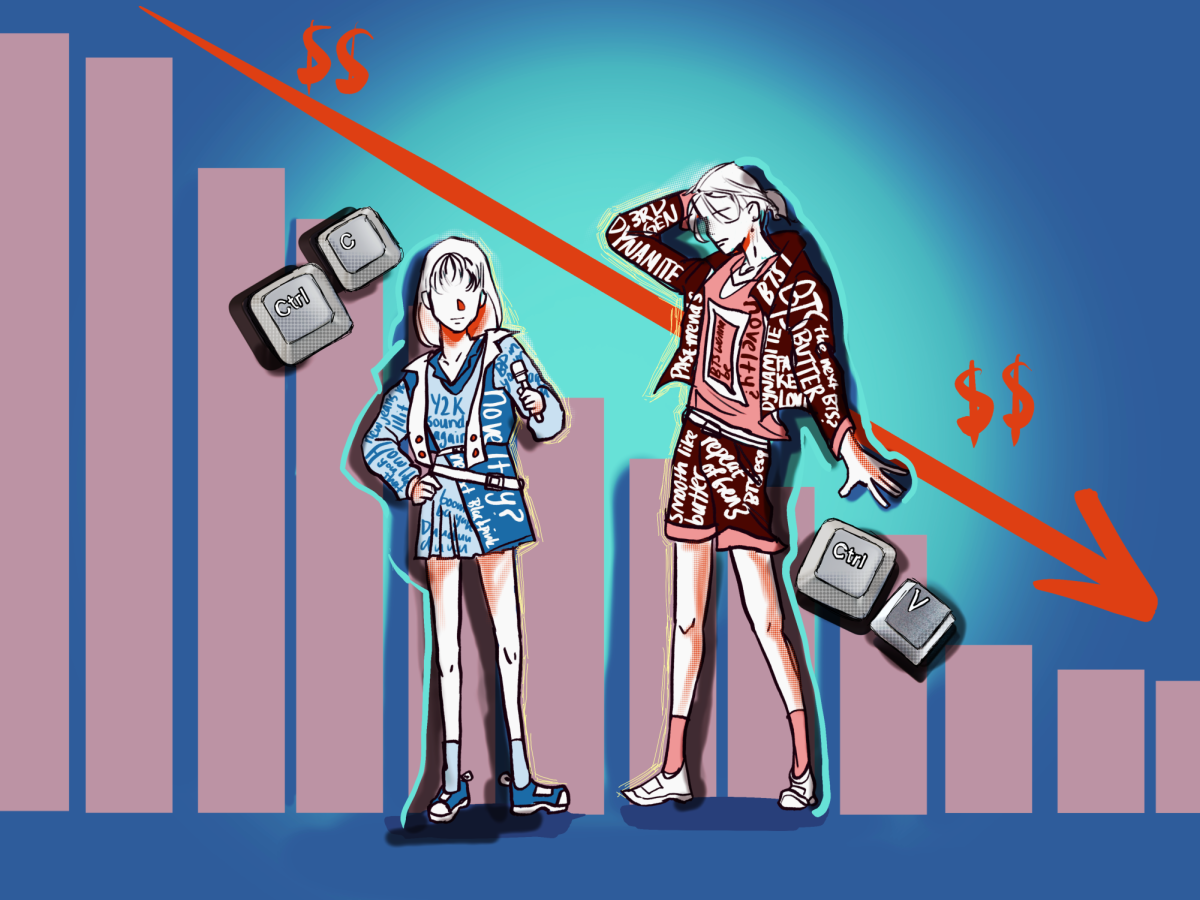“Pssst. What did you get?”
“Oh my god, you’re so smart.”
“You didn’t study and only got one wrong? How?”
As soon as a teacher passes back any test, quiz, or assignment, a similar exchange inevitably follows. It has become so much the norm that I’m surprised if I don’t get at least five people asking me what I got on my math quiz during lunch.
Teachers try their best to prevent this behavior, discouraging us from talking about our grades with other students. About every week I get at least one lecture on how it’s not the grade that matters but what you learn.
Some teachers have even gone so far as to refrain from returning graded assignments until the bell rings in order to prevent these conversations.
Why then, do students feel this need to compare grades with their classmates? While it may be easier to point the finger at competition amongst peers, the underlying motive may actually be our need to judge and compare ourselves with others.
Knowing that your friend got a C on the test that you just aced might give you a false sense of confidence and superiority. On the other hand, if you found out your friend earned an A on the test you just failed, you would immediately pledge to work harder.
However, we fail to take into account a person’s aptitude at a certain subject and circumstantial events. Just because someone receives a higher grade on a single assessments is not a sure sign of their superior intelligence.
People can have a multitude of reasons for not doing so well on a test: having a bad day, family emergencies, or simply just being so overwhelmed with work that they didn’t have ample time to study. Judging any person’s intellectual ability on their grades alone is not only flawed, but also uncalled for.
Unfortunately, I have witnessed this happen and seen friendships break apart over the incessant comparison of grades. People become mad if their friends get significantly higher grades than them “without studying.” The same will happen if friends refuse to divulge their grades.
I personally just don’t see it. If your friends won’t tell you their grades, it’s perfectly fine. Knowing their grades doesn’t help you in any way; you cannot change your grade nor can you change theirs. Not talking to friends when they don’t divulge their grades is completely pointless, as they are not obligated to tell you their grades, nor you tell yours.
So take a step back, relax, and realign your priorities. Instead of squandering your time in an attempt to move up the academic ranks, appreciate your friends for who they are and treasure the time you get to spend with them.


















![“[Building nerf blasters] became this outlet of creativity for me that hasn't been matched by anything else. The process [of] making a build complete to your desire is such a painstakingly difficult process, but I've had to learn from [the skills needed from] soldering to proper painting. There's so many different options for everything, if you think about it, it exists. The best part is [that] if it doesn't exist, you can build it yourself," Ishaan Parate said.](https://harkeraquila.com/wp-content/uploads/2022/08/DSC_8149-900x604.jpg)




![“When I came into high school, I was ready to be a follower. But DECA was a game changer for me. It helped me overcome my fear of public speaking, and it's played such a major role in who I've become today. To be able to successfully lead a chapter of 150 students, an officer team and be one of the upperclassmen I once really admired is something I'm [really] proud of,” Anvitha Tummala ('21) said.](https://harkeraquila.com/wp-content/uploads/2021/07/Screen-Shot-2021-07-25-at-9.50.05-AM-900x594.png)







![“I think getting up in the morning and having a sense of purpose [is exciting]. I think without a certain amount of drive, life is kind of obsolete and mundane, and I think having that every single day is what makes each day unique and kind of makes life exciting,” Neymika Jain (12) said.](https://harkeraquila.com/wp-content/uploads/2017/06/Screen-Shot-2017-06-03-at-4.54.16-PM.png)








![“My slogan is ‘slow feet, don’t eat, and I’m hungry.’ You need to run fast to get where you are–you aren't going to get those championships if you aren't fast,” Angel Cervantes (12) said. “I want to do well in school on my tests and in track and win championships for my team. I live by that, [and] I can do that anywhere: in the classroom or on the field.”](https://harkeraquila.com/wp-content/uploads/2018/06/DSC5146-900x601.jpg)
![“[Volleyball has] taught me how to fall correctly, and another thing it taught is that you don’t have to be the best at something to be good at it. If you just hit the ball in a smart way, then it still scores points and you’re good at it. You could be a background player and still make a much bigger impact on the team than you would think,” Anya Gert (’20) said.](https://harkeraquila.com/wp-content/uploads/2020/06/AnnaGert_JinTuan_HoHPhotoEdited-600x900.jpeg)

![“I'm not nearly there yet, but [my confidence has] definitely been getting better since I was pretty shy and timid coming into Harker my freshman year. I know that there's a lot of people that are really confident in what they do, and I really admire them. Everyone's so driven and that has really pushed me to kind of try to find my own place in high school and be more confident,” Alyssa Huang (’20) said.](https://harkeraquila.com/wp-content/uploads/2020/06/AlyssaHuang_EmilyChen_HoHPhoto-900x749.jpeg)












